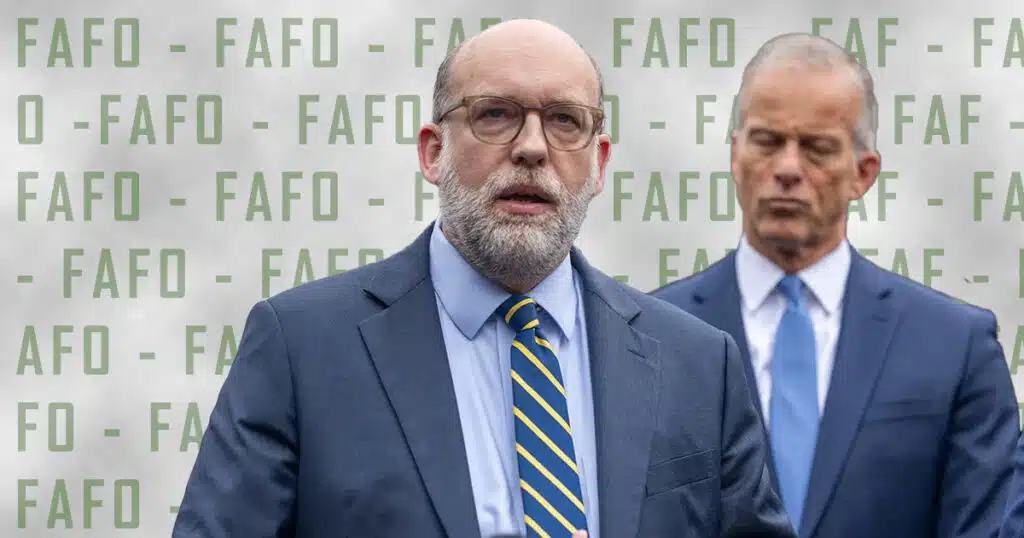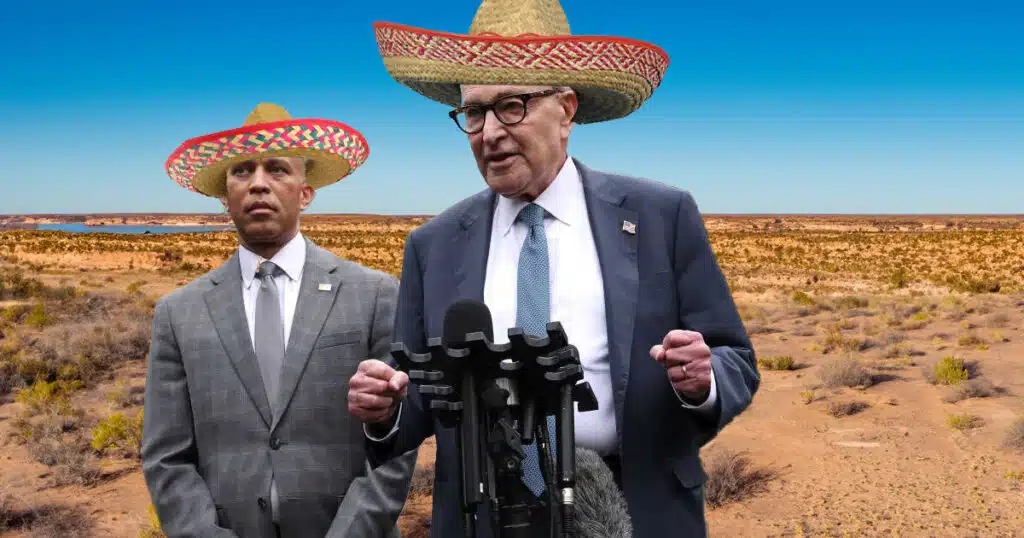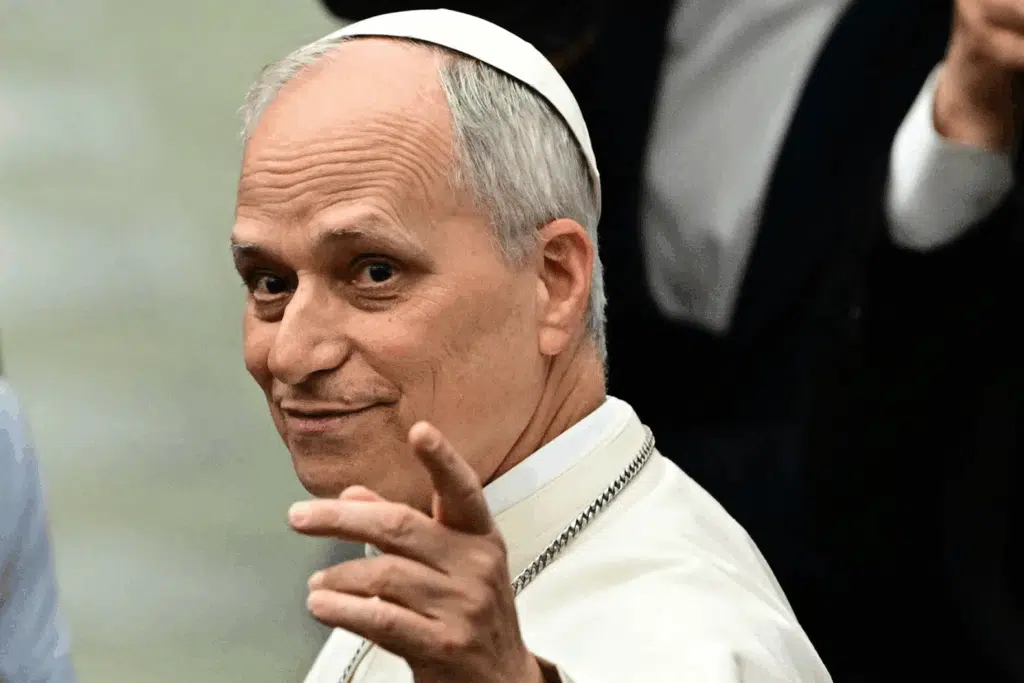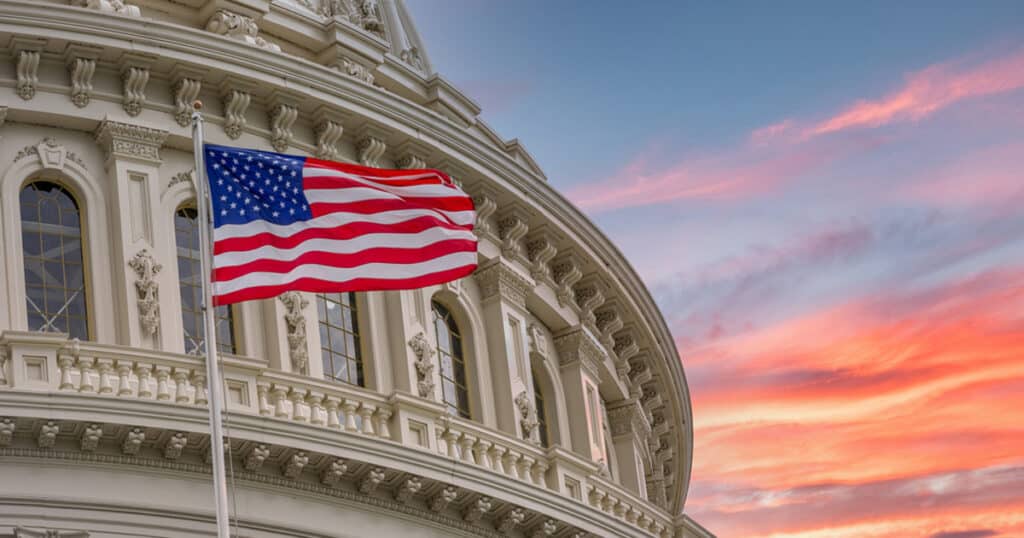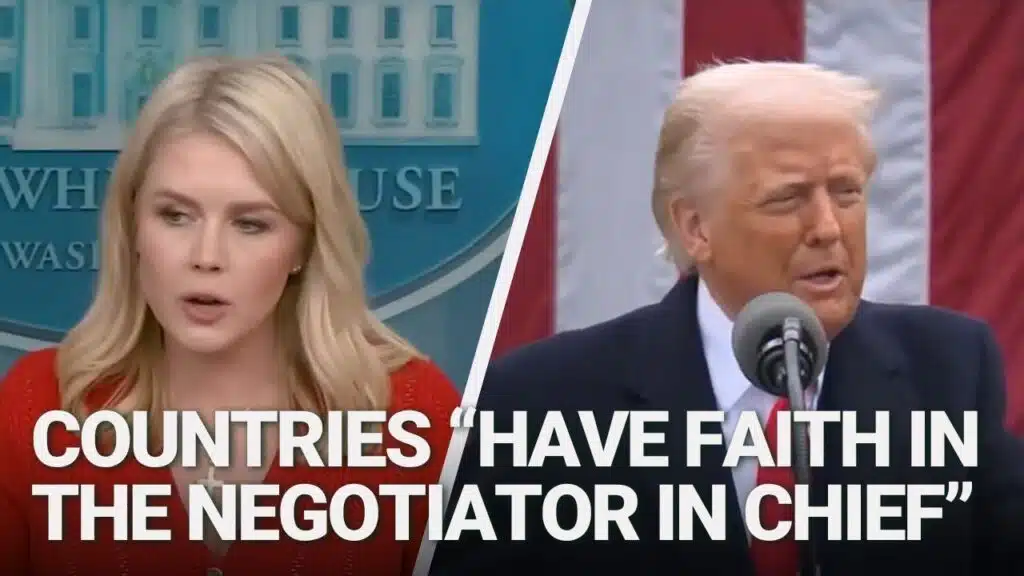
WATCH: White House denies legal ‘kneecap’ throws Trump’s trade talks into question
President Donald Trump’s bargaining position could be weaker after a federal court ruled that he doesn’t have unlimited power to impose tariffs, the foreign policy tool he had been using to reorder global trade.
The three-judge panel on the U.S. Court of International Trade unanimously ruled that Congress did not give the president tariff authority under the International Emergency Economic Powers Act of 1977. The ruling effectively voided Trump’s sweeping “Liberation Day” tariffs on countries worldwide and struck down other tariffs Trump issued under the IEEPA.
Kyle Handley, a professor of economics at the University of California San Diego and adjunct scholar with the Cato Institute, said the Court of International Trade could stall Trump’s trade talks with other nations, including the European Union.
“The instrument that [Trump is] using as the basis for negotiation, which are these tariffs, has been ruled illegal and so I think the leverage has disappeared,” Handley told The Center Square. “Why should the Europeans do much, given that this is now up in the air? I think they’ll probably hold off on offering any major concessions until this is resolved in the courts.”
A Department of Justice lawyer put it more bluntly during an earlier hearing: An injunction against the tariffs “would completely kneecap the president” while his administration works to make trade deals.
The White House lambasted the ruling, blaming activist judges for thwarting Trump’s agenda. Administration officials denied that Trump’s bargaining position was weaker after the ruling. White House Press Secretary Karoline Leavitt said Thursday that other nations were eager to continue good-faith talks on trade.
“Because other countries around the world have faith in the negotiator in chief, President Donald J. Trump, and they also probably see how ridiculous this ruling is and they understand that the administration is going to win,” Leavitt said.
Leavitt said the administration would follow the law and plans to fight the case all the way to the U.S. Supreme Court. Asked if the administration was considering other avenues for tariffs to implement the president’s trade policies, Leavitt said Trump’s agenda would stay on track.
“The president’s trade policy will continue,” she said. “We will comply with the court order, but yes, the president has other legal authorities where he can implement tariffs.”
Handley noted that the court gave Trump another pathway for tariffs, without going through Congress, where the GOP holds slim margins in both chambers. The court said Trump could use Section 122 to impose up to 15% tariffs for up to 150 days.
Leavitt said the administration was exploring all its options.
Handley said the Trump administration could use that authority or try to circumvent the ruling in other ways. Either way, Handley expects chaos and uncertainty to continue to loom over Trump’s tariff plans, bringing little relief to businesses struggling to adjust to the president’s on-again, off-again tariffs while the case plays out in the courts.
“I would say the uncertainty is about as high as it could be,” Handley said.
The Trump administration filed a notice of appeal immediately after Wednesday’s ruling.
The Liberty Justice Center, a nonprofit based in Texas, challenged the administration’s reciprocal tariffs on behalf of multiple small businesses, including VOS Selections, a New York-based wine importer. States, led by Oregon, also challenged the president’s authority on tariffs.
The Court of International Trade issued one opinion for both V.O.S. Selections, Inc. v. Trump and State of Oregon v. U.S. Department of Homeland Security that applies to all of the Trump administration’s tariffs imposed under the IEEPA, including the “Liberation Day” tariffs and the tariffs imposed on goods from China, Mexico and Canada.
Economists, businesses and some publicly traded companies have warned that tariffs could raise prices on a wide range of consumer products.
Trump has said he wants to use tariffs to restore manufacturing jobs lost to lower-wage countries in decades past, shift the tax burden away from U.S. families, and pay down the national debt.
A tariff is a tax on imported goods paid by the person or company that imports the goods. The importer can absorb the cost of the tariffs or try to pass the cost on to consumers through higher prices.
